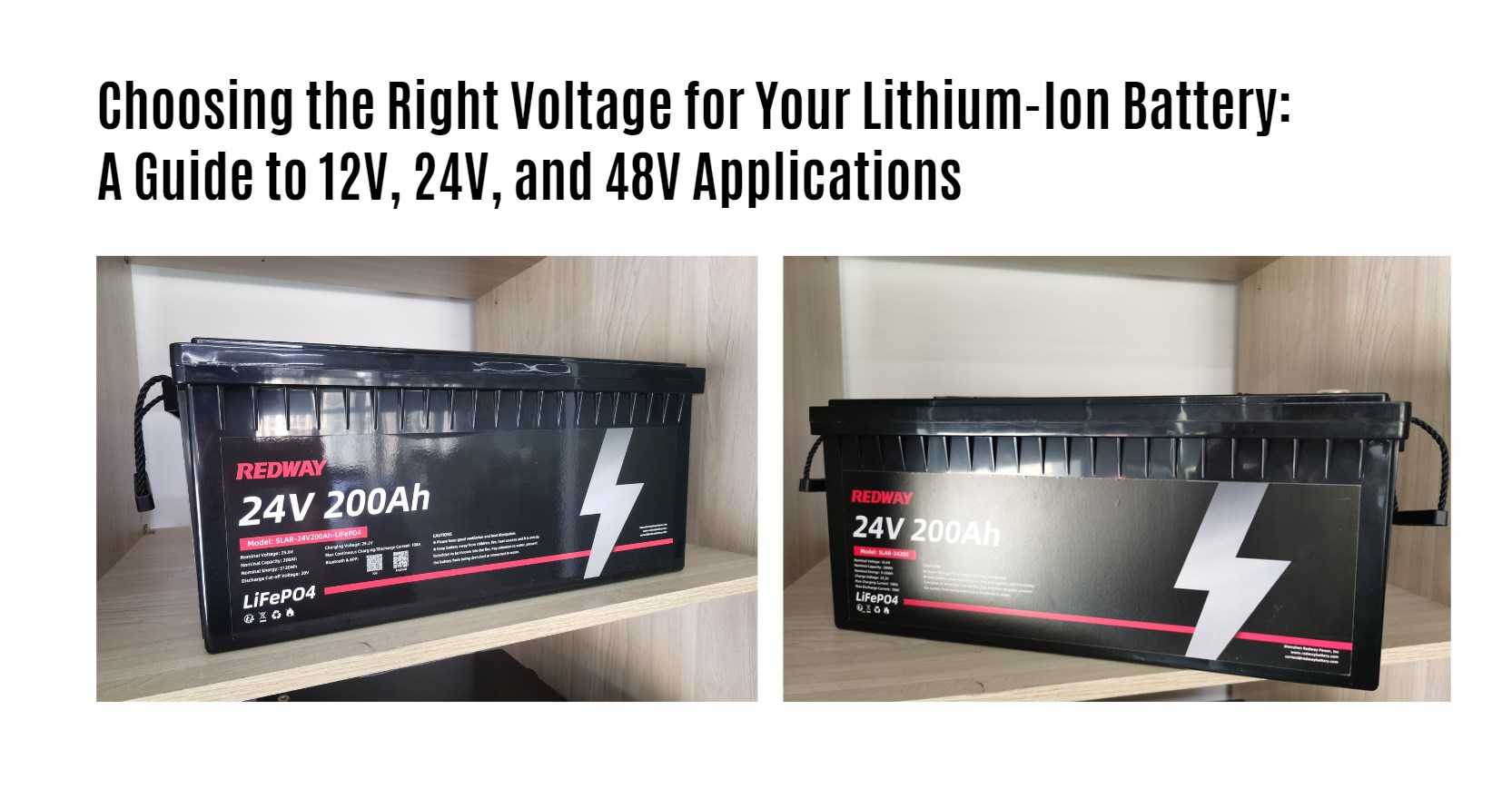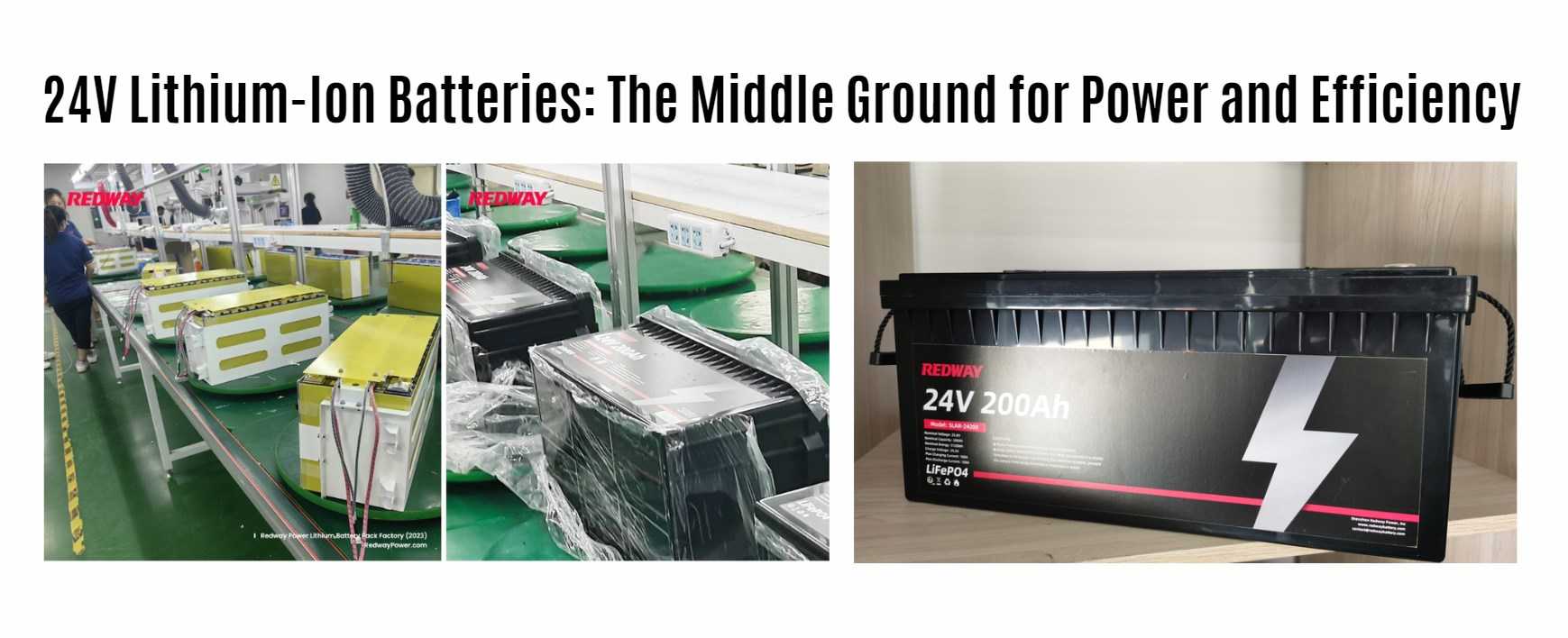Selecting the appropriate voltage for your lithium-ion battery is paramount for optimal performance across diverse applications. Whether for portable electronics, electric vehicles, or large-scale energy storage, understanding the nuances of 12V, 24V, and 48V lithium-ion batteries will guide you in making an informed decision tailored to your specific needs.
12V Lithium-Ion Batteries: Versatility in Compact Form
Applications and Advantages
12V lithium-ion batteries are designed for low to moderate power output, making them ideal for:
- Portable Electronics: Powering laptops, cameras, and other portable devices.
- Backup Power Systems: Essential for providing emergency power to small-scale applications.
- Small Recreational Vehicles: Popular in RVs, boats, and small off-road vehicles due to their lightweight and compact nature.
Key Features
- Lightweight and Compact: Easy to handle and install, making them perfect for mobile and portable applications.
- Cost-Effective: Generally more affordable compared to higher voltage options, providing a budget-friendly solution without compromising on quality.
- Wide Range of Applications: Their versatility extends from household gadgets to outdoor recreational equipment.
24V Lithium-Ion Batteries: The Middle Ground for Power and Efficiency
Applications and Advantages
24V batteries offer a balanced power output suitable for:
- Electric Bicycles and Small Electric Vehicles: Providing the necessary power for efficient performance.
- Marine Applications: Ideal for powering small boats and marine equipment.
- Commercial and Residential Backup Power: Used in uninterrupted power supply (UPS) systems and solar energy storage.
Key Features
- Moderate Power Output: Offers longer run times and higher power compared to 12V batteries.
- Cost and Size Efficiency: While more expensive and larger than 12V batteries, they offer a significant boost in performance.
- Extended Run Times: Beneficial for applications requiring sustained power over longer periods.
48V Lithium-Ion Batteries: Powerhouse for High-Energy Applications
Applications and Advantages
48V batteries are engineered for high-power applications, including:
- Electric Vehicles (EVs): Essential for modern electric cars, providing the high energy output required for efficient driving.
- Solar Power Storage Systems: Crucial for storing and managing solar energy in residential and commercial solar setups.
- Large-Scale Backup Power Systems: Used in industrial settings to ensure uninterrupted power supply.
Key Features
- High Energy Output: Delivers the highest power among the three voltage options, suitable for demanding applications.
- Extended Run Times: Offers superior performance and longer operational periods.
- Larger and More Expensive: The trade-off for high power is an increase in size, weight, and cost.
Factors to Consider When Choosing Battery Voltage
Power Requirements
Assess the specific power needs of your application. Higher voltage batteries provide more power but may be unnecessary for low-power applications.
Cost Implications
Higher voltage batteries tend to be more expensive. Balance your budget against the performance requirements.
Size and Weight
Consider the physical constraints of your application. Higher voltage batteries are larger and heavier, which might impact portability and installation.
Run Time
Evaluate the duration for which you need a continuous power supply. Higher voltage options typically offer longer run times.
Conclusion
Selecting the right lithium-ion battery voltage is crucial for matching the power requirements and characteristics of your application. 12V batteries are perfect for low to moderate power needs, 24V batteries offer a good balance of power and efficiency, and 48V batteries are best suited for high-power, energy-intensive applications. By carefully considering factors such as power requirements, cost, size, and run time, you can make a well-informed decision that ensures optimal performance and reliability.





